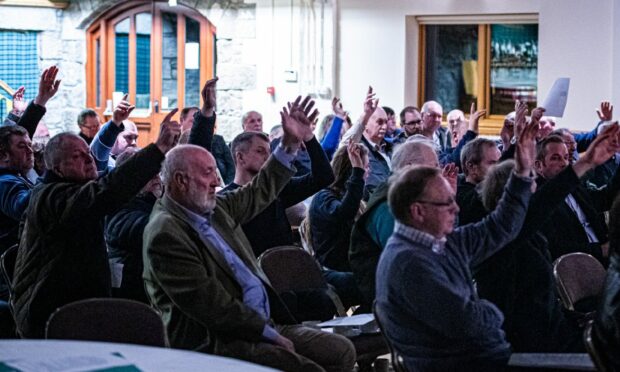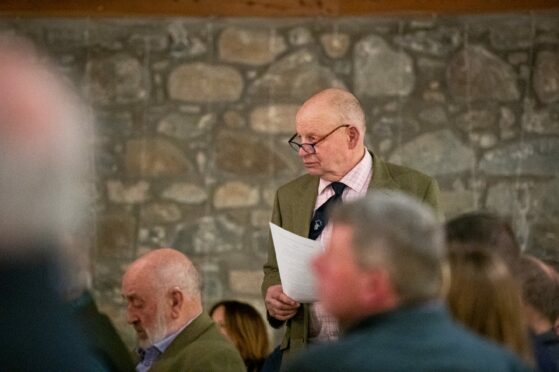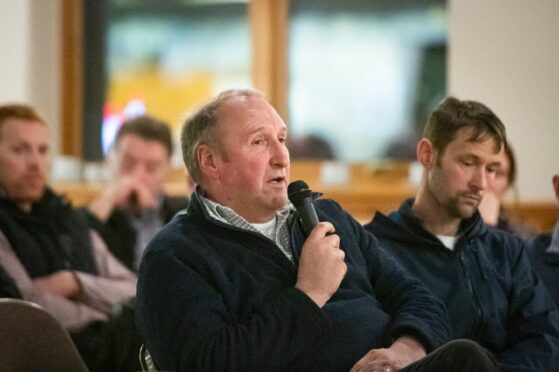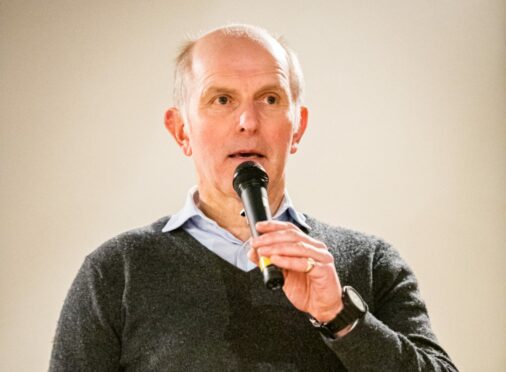Industry anger over the ever-increasing demands of Scotland’s farm assurance schemes led to a gathering of more than 70 farmers voting overwhelmingly to demand reform.
A protest meeting at Oldmeldrum, organised by seed potato grower Patrick Sleigh, attracted farmers from as far afield as Moray, Angus, Speyside and Deeside.
Mr Sleigh said he had also taken more than 80 calls from worried producers from Caithness, Dumfriesshire, Mull, Fife and the Isle of Skye.
Quality Meat Scotland’s (QMS) assurance scheme attracted the most criticism from speakers, who complained about duplication of inspections and lengthy demands on their time and resources every year.
One farmer said rules and conditions had grown from 24 pages in 2011 to 51 in 2022, “and we’re getting no benefit from it” he said.
Farmers talked about a lack of accountability by the various scheme operators and claimed individual inspectors appeared to adopt different rules.
However, despite the frustration, there was little appetite for completely scrapping the QMS, Scottish Quality Crops (SQC) or Red Tractor schemes.
Robert MacDonald from Grantown, NFU Scotland’s Less Favoured Areas committee chairman, said: “Most complaints we get about QMS are about the constant extra add-ons every year. It was fine when they were monitoring all the legal requirements, but now they’re loading the schemes with extras that are costing us money and getting backs up.
“We realise we need assurance and have to be inspected, but what’s happening now is going above and beyond.
“We backed it because we got a Scottish premium that is now gone, so we’re getting no benefit from QMS.”
Mr Sleigh insisted the meeting was just a starting point for a wider national debate.
He said he would “get the ball rolling” by sending questionnaires to all those who had attended the meeting, and suggested producers in other parts of the country should hold meetings to ensure their views were also heard.
“NFU Scotland (NFUS) has a role, but it’s too close to the assurance organisations and we need some independence,” said Mr Sleigh.
“The assurance bodies need to get the message that they’re not doing what they were set up to do.
“They’ve turned into a monster with more and more rules and no accountability.”
However, NFUS vice-president Andrew Connon said the union was awareof replication in the schemes and assured the farmers he would take their concerns to QMS.
“We need to highlight the frustration and I acknowledge the number of people in the room tonight,” he said.
“I believe there’s a need for assurance schemes to give a baseline, but they need to be simple and accountable.”
Agrico executive director, Archie Gibson, who helped moderate the meeting,
said his business complied with Red Tractor’s Safe Haven and organic assurance
schemes, which were important for consumers and the supply chain.
“I fully support the conversation about the future of schemes and how there has to be balance and proportionality,” he said.
“AHDB reached the point where it lost the confidence of its levy payers and as a result, the potato and horticulture sectors were wound up.”
A collection for rural charity, RSABI raised £152.




